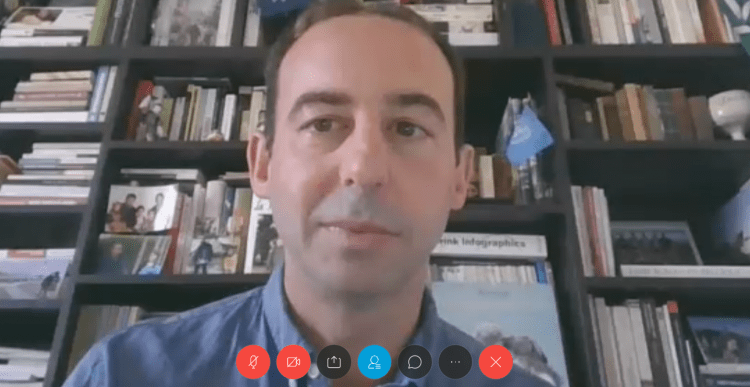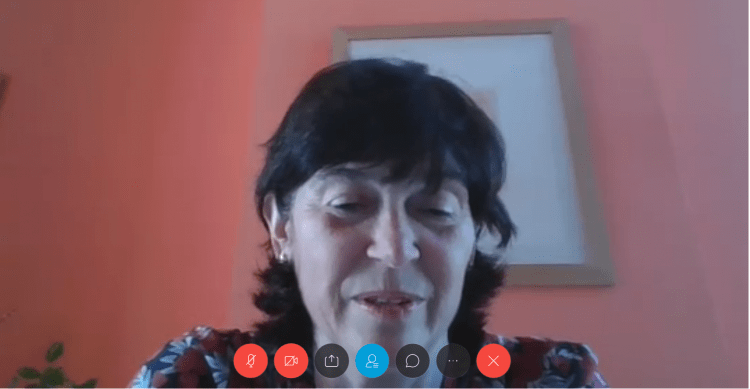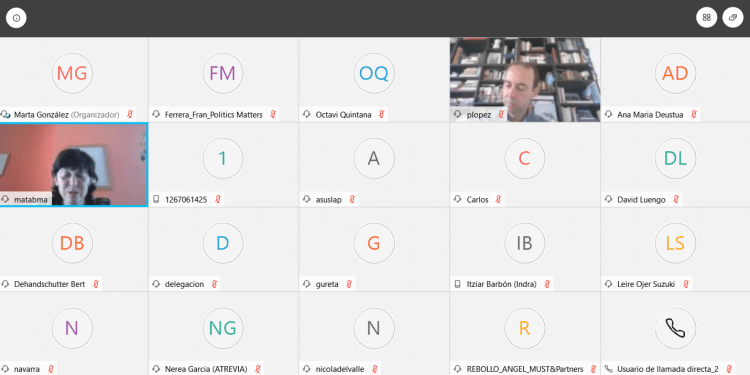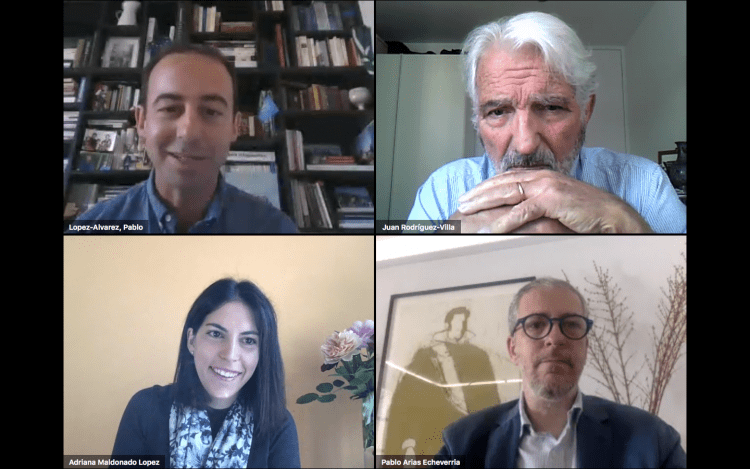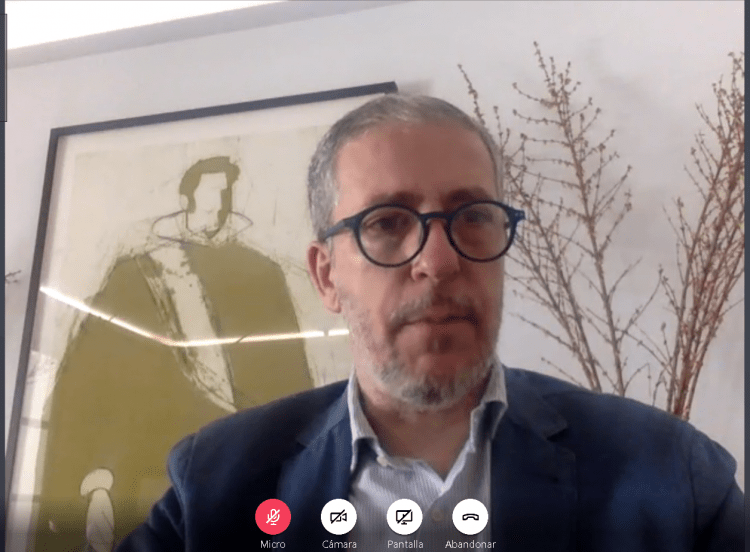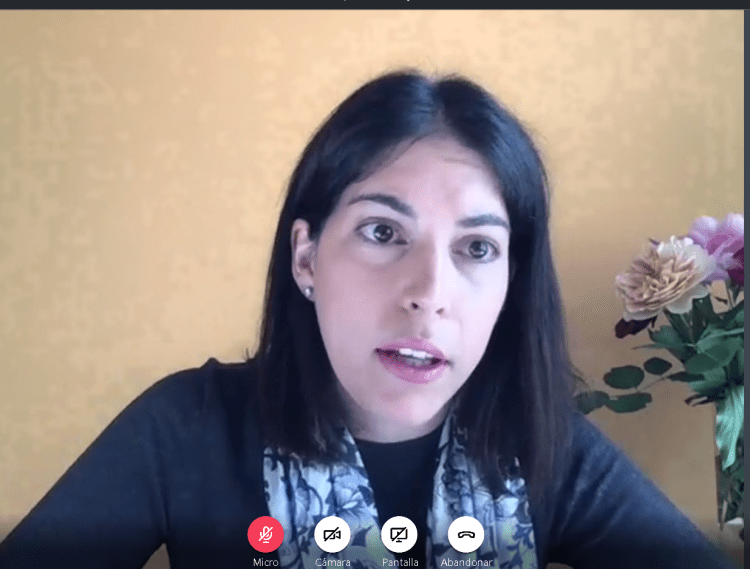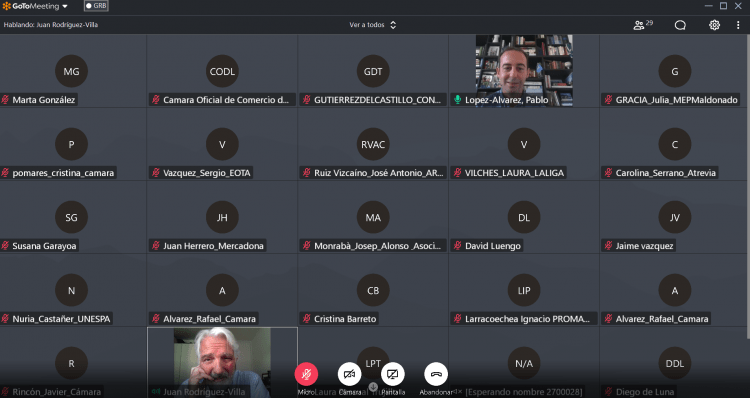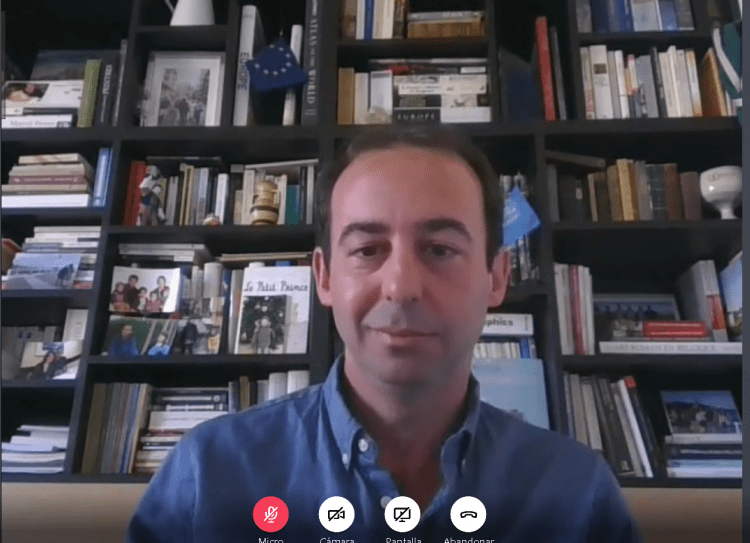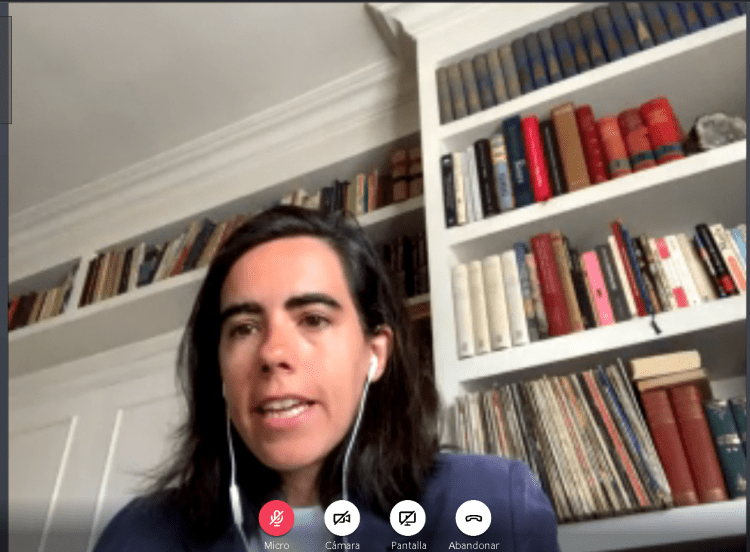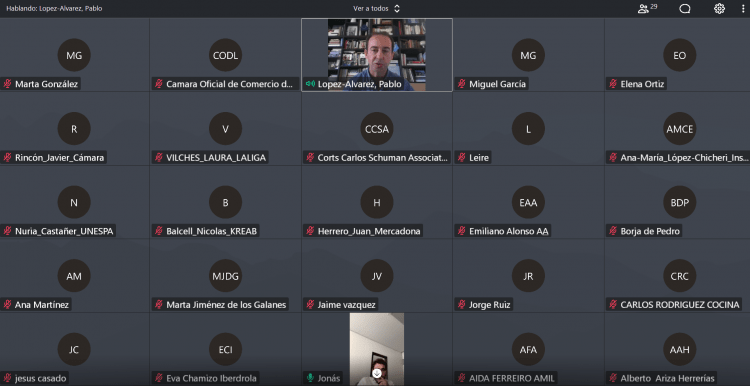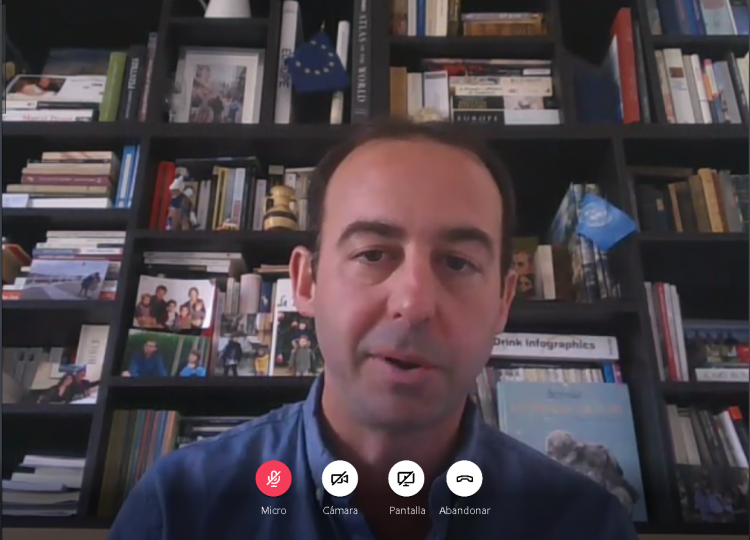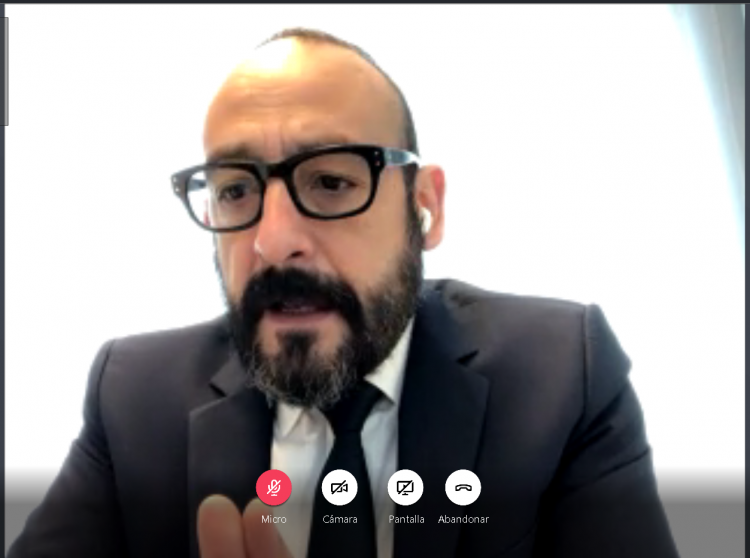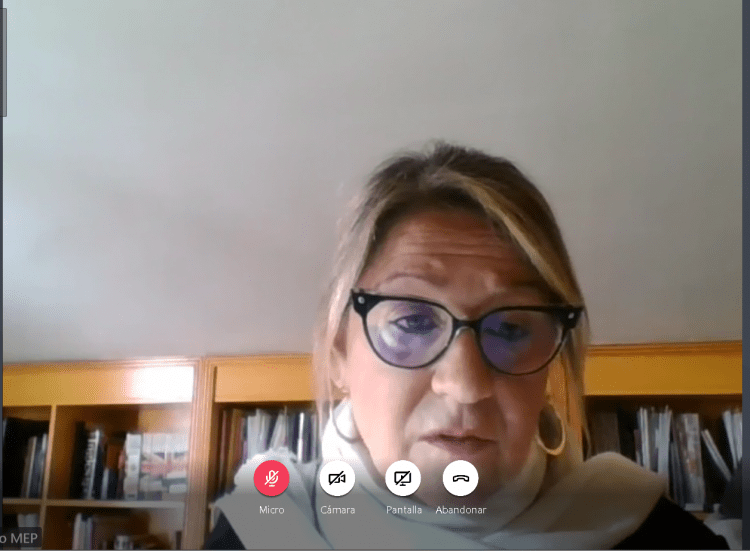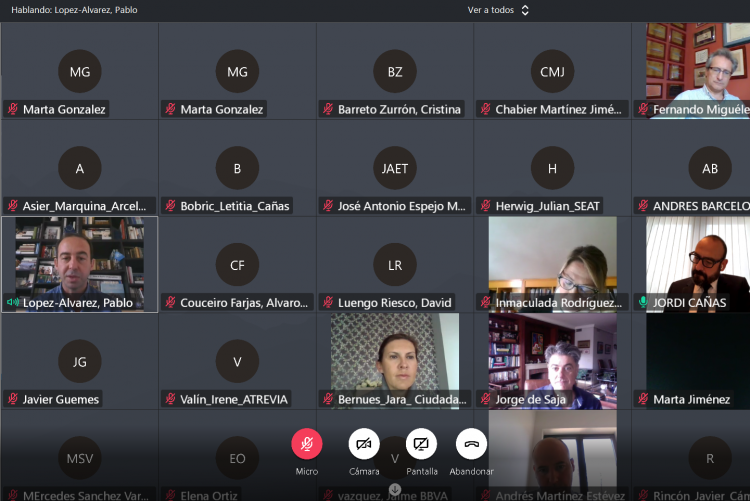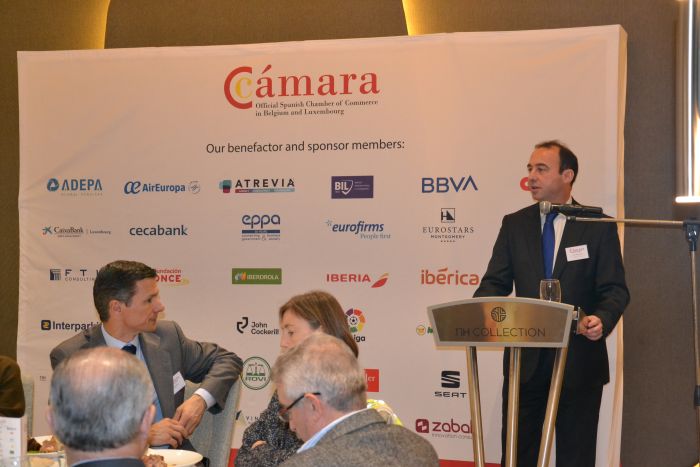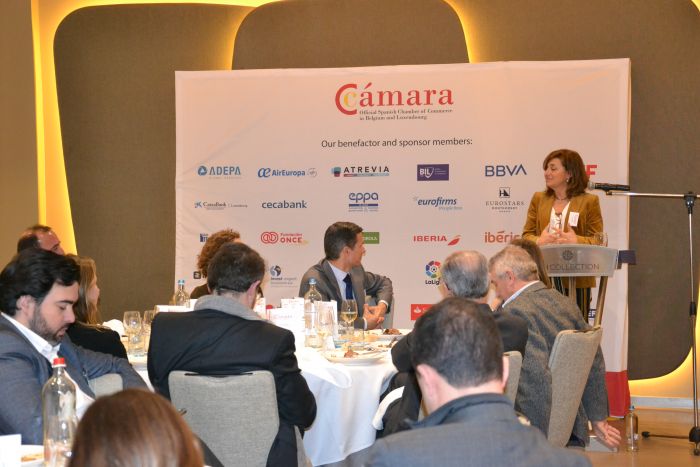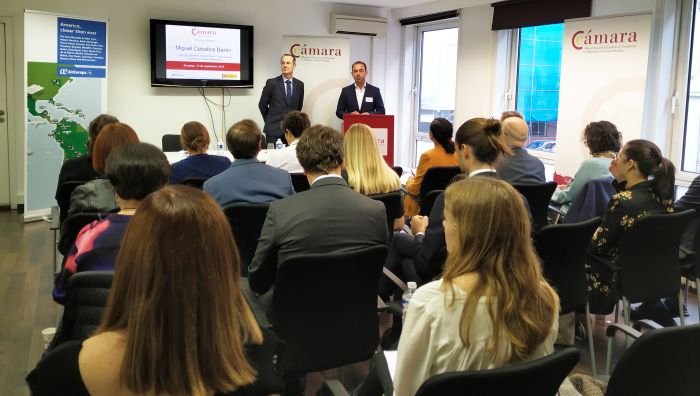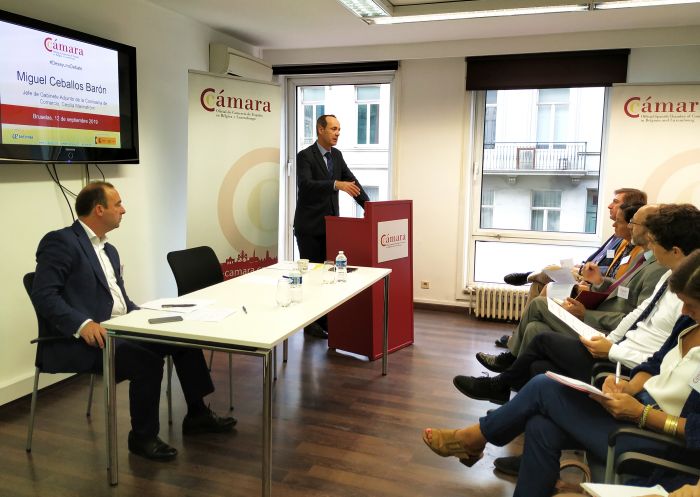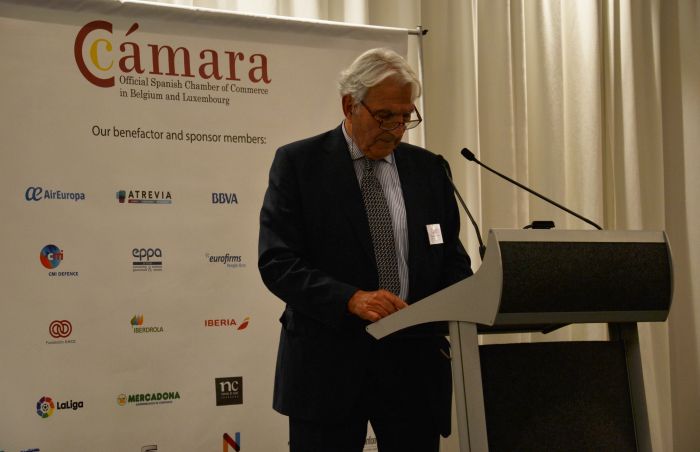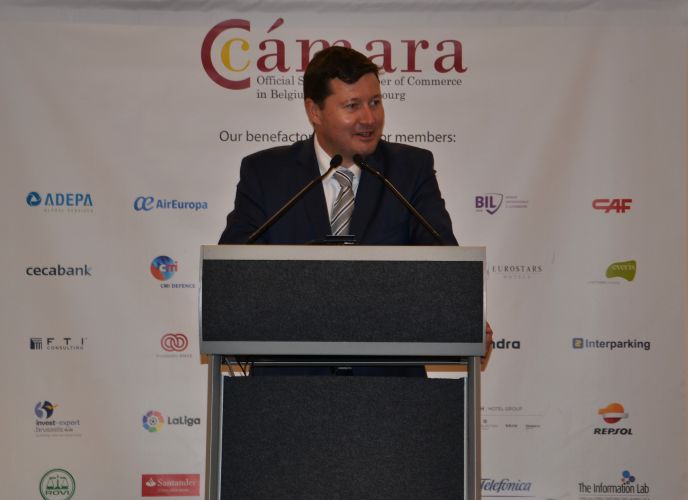Breakfast-Debate with Isabel de la Mata, Principal Advisor for Health and Crisis Management, European Commission
On May 27th, the Official Spanish Chamber of Commerce in Belgium and Luxembourg hosted a new session of its Breakfast Debates, a platform for meetings between Spanish companies and European Institutions. The event was addressed by Isabel de la Mata, Principal Advisor for Health and Crisis Management of the European Commission and covered “The role of the Commission and DG SANTE in relation to the COVID: present and future”. Given the exceptional circumstances of the spread of COVID-19 in Belgium, this breakfast debate was held online and was attended by representatives of member companies of the Chamber, managers of companies, multinationals and Spanish Regional Delegations.
Pablo López Álvarez, Vice-President of the Chamber and moderator of the event, welcomed the speaker and thanked all the attendees for their participation. He began with a presentation of the principal advisor and gave a quick introduction to the current situation we are facing, which is undoubtedly affecting the priorities and activity of the Commission.
Isabel de la Mata began by explaining the integrated response provided by the European Commission to the covid-19 crisis, from monitoring the evolution of the pandemic with the help of the European Centre for Disease Prevention and Control (ECDC), to the management and measures adopted to cover the most immediate needs in the supply of medicines and medical equipment.
During her presentation, the speaker highlighted the joint action of Member States in tackling the health crisis and in making joint purchases of the products that are in most shortage in the Union, namely health protection equipment. She then underlined the outstanding work of the European team of experts that advises the European Commission and that has been elaborating reports and recommendations of great importance in subjects such as the prevention tests, community measures, de-escalation phases, etc. during the development of this crisis. It also highlighted the good crisis coordination by the European Institutions, through the general crisis coordination system, in close collaboration with the Health Security Committee, the Council’s IPCR and the competent authorities of the Member States. Furthermore, she also reported on the different financial instruments on which the European Institutions, and in particular the Commission, have relied and noted the great flexibilization on the use of all the financial instruments to achieve an effective and immediate health response appropriate to the needs arising from this crisis.
During the Q&A session, participants were able to raise many questions of interest to them. Thus, various topics were discussed such as the impact of this crisis on the European pharmaceutical strategy within the new Community health program or the lines of action, external and internal, in which the EU is working on an effective vaccine in the close future.
The Spanish Chamber of Commerce in Belgium and Luxembourg would like to thank Isabel de la Mata and all the participants in this session for their participation.

